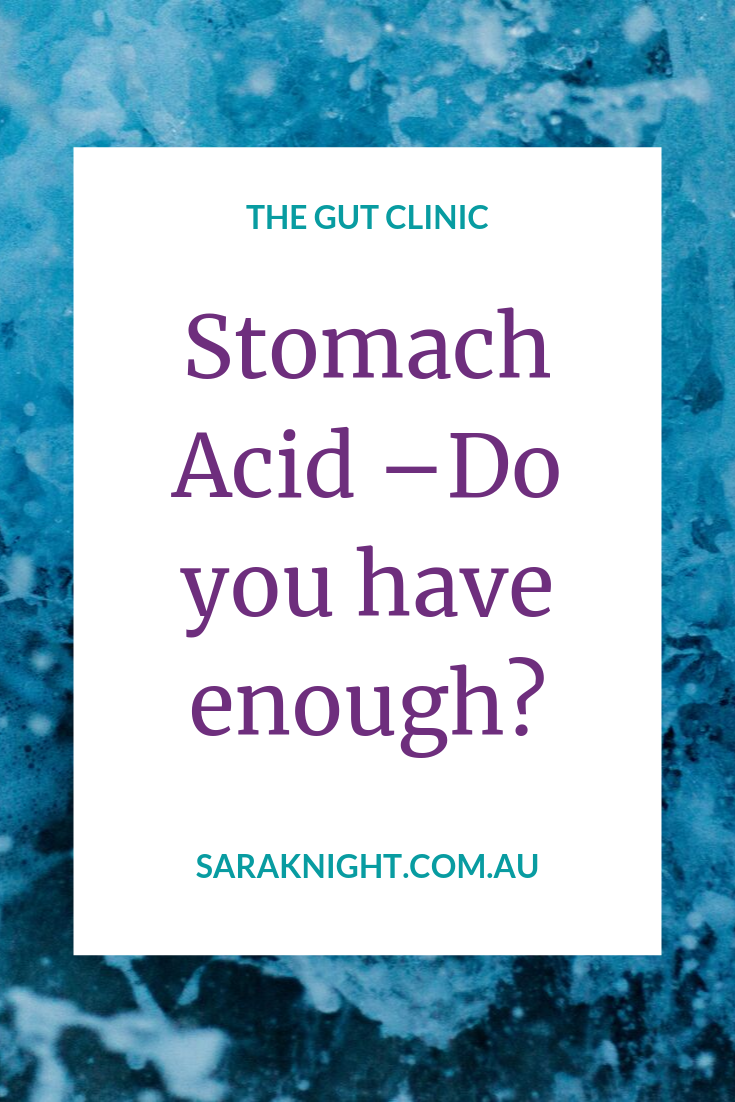
Blog
My IBS is not your IBS
IBS, or Irritable Bowel Syndrome, often leaves people feeling frustrated and seeking specific answers regarding their condition. However, IBS is a diagnosis of exclusion, meaning it is reached after ruling out other structural or pathological issues through tests. Consequently, the cause and treatment for IBS remain unknown. The lack of a definitive cause and the variation in symptoms among individuals make it challenging to recommend standardized treatments for everyone.
Irritable Bowel Syndrome - My Thoughts
Exploring IBS and the different types but also some concerns I have over how it is diagnosed and managed. Some recommendations on how to manage IBS are provided as well.
Stomach Acid - Do you have enough?
Stomach acid plays a vital role in digestion and overall health. It breaks down proteins, safeguards against harmful bacteria, activates nutrients like B12, and initiates essential digestive processes. Many face low stomach acid due to stress, diet changes, and antacid use, leading to mood issues, microbiome imbalances, nutrient deficiencies, and digestive problems. To optimize stomach acid:
Check chloride-rich foods like seaweed, celery, olives, and tomatoes.
Consider digestive bitters for gentle digestion stimulation.
Use apple cider vinegar or hydrochloric acid supplements with meals, unless you have certain conditions or sensitivities.
Remember, bitters are a temporary fix; finding the root cause is key for sustainable health.
Gut and Stress Link
Gut issues often stem from food and stress. Stress impacts gut function and healthy bacteria balance. In today's busy world, it's crucial to enhance stress resilience for better gut health:
Spend time outdoors and breathe deeply.
Learn to say no and prioritize tasks.
Adopt a positive mindset.
Exercise moderately.
Prioritize quality sleep.
Seek support when needed to reduce stress and improve overall well-being.
Bloating
Bloating can be uncomfortable and disrupt daily life. It's often caused by excess gas or digestive muscle issues. Simple tips like eating slowly and avoiding carbonated drinks may help. If not, consider factors like poor gut health, food intolerances, or bacterial imbalances. Don't ignore bloating; seek help for a healthier gut.
Signs of a Healthy Gut
A healthy gut isn't just about digestion. Signs include good energy levels, healthy skin, a resilient mood, and a balanced immune system. Your gut's ability to absorb nutrients affects your energy. Healthy skin reflects internal gut health. The gut influences mood, and a strong immune system depends on gut health. Don't ignore these signs.
The Paradox of Reflux
Proton pump inhibitors (PPIs) have surged in popularity since the '90s, costing $200 million for 7 million prescriptions in Australia in 2013-2014. They treat various conditions but long-term use can pose problems like bacterial overgrowth, impaired digestion, and nutrient absorption. Short-term use may be better for some, focusing on root causes like low stomach acid, bacterial overgrowth, or stress. Simple measures include a low-carb diet, probiotics, and mindful eating. While PPIs are necessary in specific cases, long-term use should be cautious, with a focus on improving gut health through gradual reduction and addressing underlying issues.
What is the best probiotic to take?
The question of which probiotic to take isn't straightforward, as it depends on individual circumstances. Probiotics have great benefits, but those on immune-suppressing drugs, undergoing cancer treatment, or with certain autoimmune conditions should consult specialists first. For general health, a medium to high-dose multi-strain probiotic is recommended. If you've been on antibiotics, opt for a high-dose multi-strain probiotic for 30 days after. When starting antibiotics, take probiotics two hours apart, doubling the dose, but be cautious of diarrhea. Specific conditions may require strain-specific probiotics, where professional guidance is essential. Harnessing the microbiome's power is an exciting frontier in health research.
What are Digestive Enzymes?
Digestive enzymes play a vital role in breaking down food into usable molecules for our bodies. There are three types: carbohydrate-specific, protein-specific, and fat-specific enzymes. Low enzyme levels can lead to symptoms like bloating and fatigue, often confused with IBS or food intolerance. Adequate protein and zinc intake are crucial for enzyme production. To support digestion, chew food thoroughly, eat slowly, include protein and zinc-rich foods, consume raw enzyme-rich foods, and manage stress. Some may benefit from digestive enzyme supplements, but professional guidance is advisable for personalized solutions.
Could Magnesium Be Affecting You In Ways You Didn't Realise?
A client suffering from severe diarrhea for 18 months found relief by discontinuing a poor-quality magnesium supplement, primarily magnesium oxide, she was taking for restless legs. Proper magnesium forms, like chelates and citrates, are better absorbed. Lower doses are generally sufficient, with higher amounts needed for specific conditions like chronic fatigue. Increasing magnesium-rich foods and taking supplements separately from zinc, calcium, and iron aids absorption. Magnesium offers numerous benefits, including anxiety and muscle cramp relief, making it a key nutrient for gut and mental health.
Bloating: A Symptom of Digestive Issues
Bloating can be a perplexing and disruptive symptom, often occurring sporadically. Despite negative medical tests, it's typically linked to inadequate food digestion, dietary choices, or gut bacteria imbalances. In severe or chronic cases, a Complete Digestive Stool Analysis (CDSA) can offer insights and guide a tailored protocol, involving digestive enzymes, food intolerance testing, and pre/probiotics to restore balance. Don't delay seeking help for persistent bloating, as it can worsen over time and often requires intervention.
IBS – Diarrhoea Dominant - Take Back Control
Diarrhea-dominant Irritable Bowel Syndrome (IBS-D) can significantly impact daily life, but naturopathic treatment often brings quick relief. Symptoms include frequent loose stools, pain, gas, and nausea. Causes may include stress, food triggers, Small Intestinal Bacterial Overgrowth (SIBO), pathogens, and thyroid dysfunction. Treatment priorities involve stopping diarrhea, dietary adjustments, stress management, and nutrient replenishment. Many clients report rapid improvement and regaining control of their lives through this approach.










